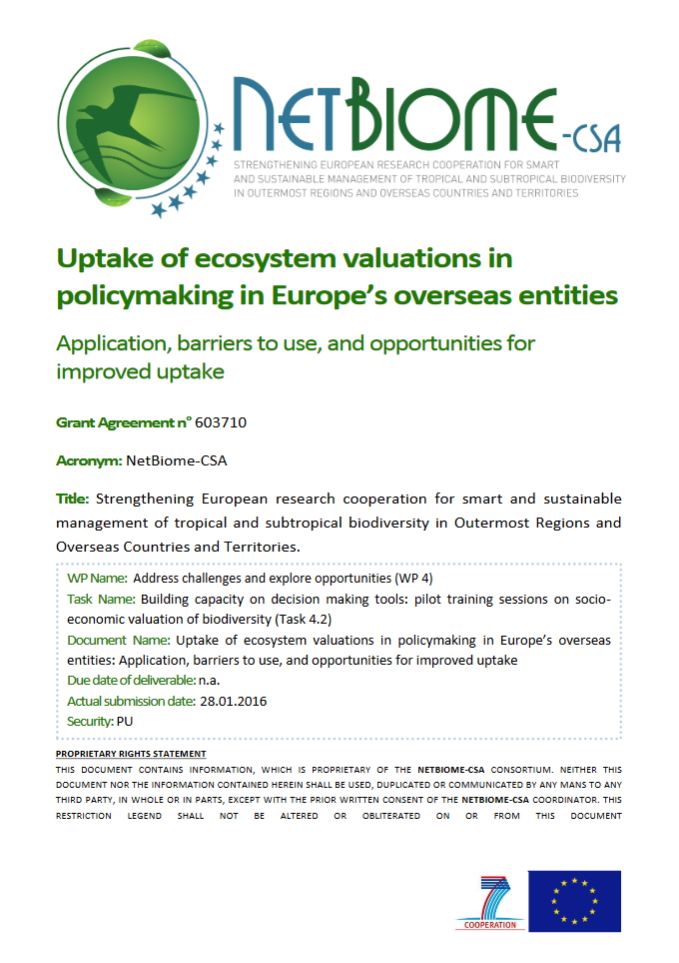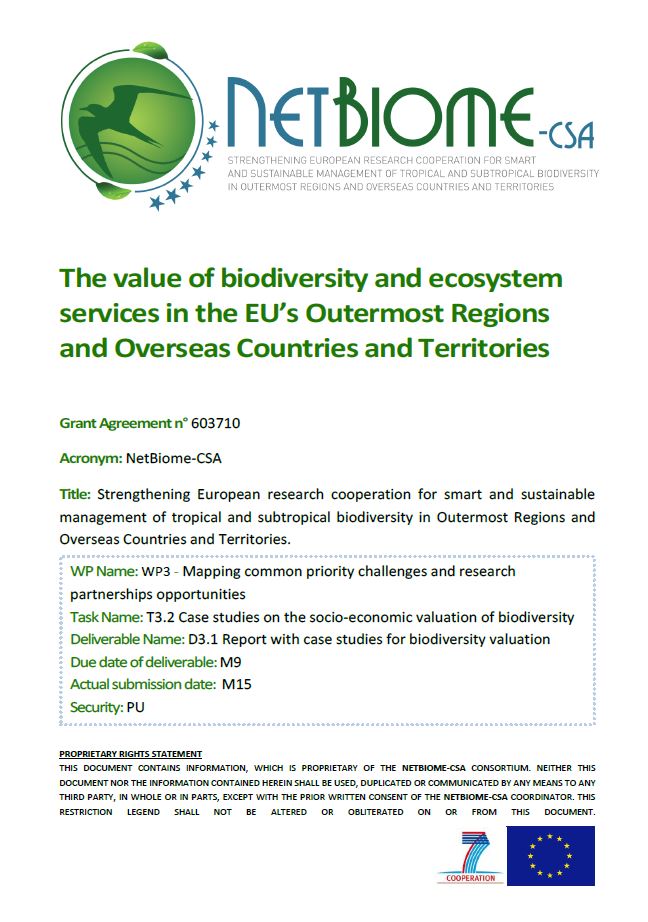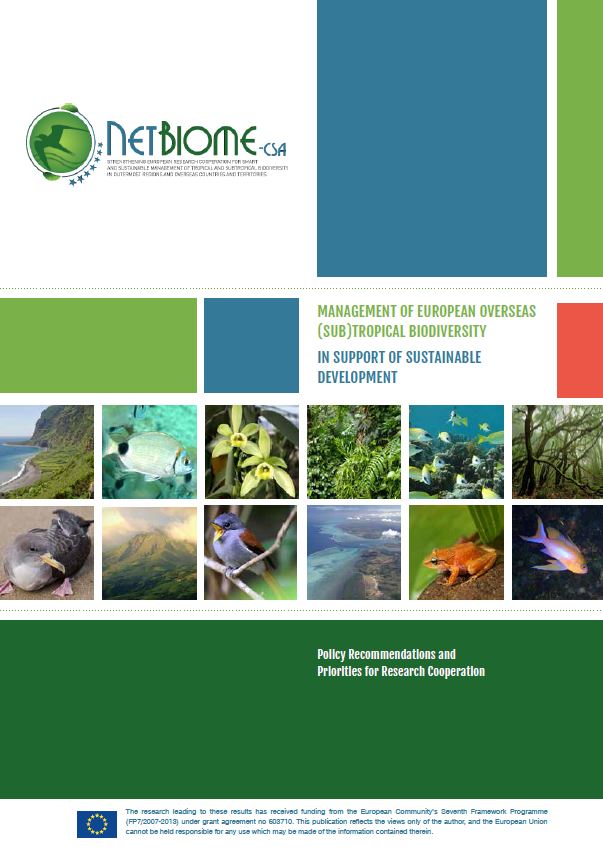Biodiversity and Sustainable Development in the EU's Outermost Regions and Overseas Countries and Territories (NetBiome-CSA)
- Project
- Research Program
- Duration
-
-
The NetBiome-CSA project aimed at extending and strengthening research partnerships and cooperation for smart and sustainable management of tropical and subtropical biodiversity in the EU’s outermost regions (ORs) and overseas countries and territories (OCTs). Ecologic Institute contributed to the project by providing evidence on the economic value of biodiversity and ecosystem services in ORs and OCTs, by organising training sessions for stakeholders, and by developing targeted policy recommendations for local, regional and EU policy-makers.
In addition to its 28 Member States, the European Union includes 34 associated overseas entities. Consisting of nine outermost regions and twenty-five overseas countries and territories, they have constitutional ties with Denmark, France, the Netherlands, Portugal, Spain and the United Kingdom. The EU overseas entities are well-known hotspots of terrestrial, freshwater and marine biodiversity. They support unique ecosystems which are home to an estimated one-third of the globally threatened species, including many endemic species.
Although the importance of biodiversity for the territories is acknowledged, international obligations for conservation often remain unmet. Contributing factors include the nations’ remoteness (adding to the cost of conservation projects), vulnerability to economic shocks, limited access to technical expertise, difficulties to build and maintain infrastructure, or the lack of sustainable energy supply. Biodiversity is additionally threatened by invasive non-native species, climate change and habitat loss, and marine conservation in particular is subject to complex jurisdictional matters between the EU, EU Member States and overseas entities levels.
NetBiome-CSA aimed at supporting smart and sustainable management of tropical and subtropical biodiversity in the EU’s ORs and OCTs by strengthening and extending partnerships and cooperation among researchers, policy-makers and stakeholders. This was be achieved through a participative process mobilising stakeholders, their knowledge and resources for initiatives such as policy and priority analysis, multi-stakeholder dialogues, exchange of good practices, training and issuing of policy recommendations.
The project’s activities contributed to:
- improved research and innovation governance;
- alignment of research efforts with policy needs with the aim of strengthening evidence-based policies;
- enhanced implementation and impact of the EU Biodiversity Strategy and CBD Strategic Plan;
- innovative biodiversity management tools;
- increased regional socio-economic and cultural development in ORs and OCTs;
- enhanced international visibility of ORs and OCTs and the uptake of their good practices, expertise and knowledge; and
- effective international and trans-regional cooperation among ORs and OCTs and with third countries.
Ecologic Institute coordinated several tasks in the project, focussing on the assessment and communication of the economic value of biodiversity and ecosystem services in ORs and OCTs. This included a review of existing valuation studies and valuation training materials, as well as analysis of stakeholder interviews on increasing policy impact of valuation studies. Ecologic Institute also formulated policy recommendations for the integration of environmental valuations into policy processes at all relevant levels. Ecologic Institute's outputs within the project included the following:
- A database of stakeholder training materials on biodiversity valuation (link to website)
- A searchable database of valuation case studies in the EU ORs/OCTs (link to website)
- The Report "The value of biodiversity and ecosystem services in the EU’s Outermost Regions and Overseas Countries and Territories" [pdf, 2.1 MB, English] based on a literature review
- The Report "Uptake of ecosystem valuations in policymaking in Europe's overseas entities: Application, barriers to use, and opportunities for improved uptake" [pdf, 1.1 MB, English]
- Contribution to the Strategic Document "Management Of European Overseas (Sub)Tropical Biodiversity In Support Of Sustainable Development: Policy Recommendations and Priorities for Research Cooperation" [pdf, 0.9 MB, English]






